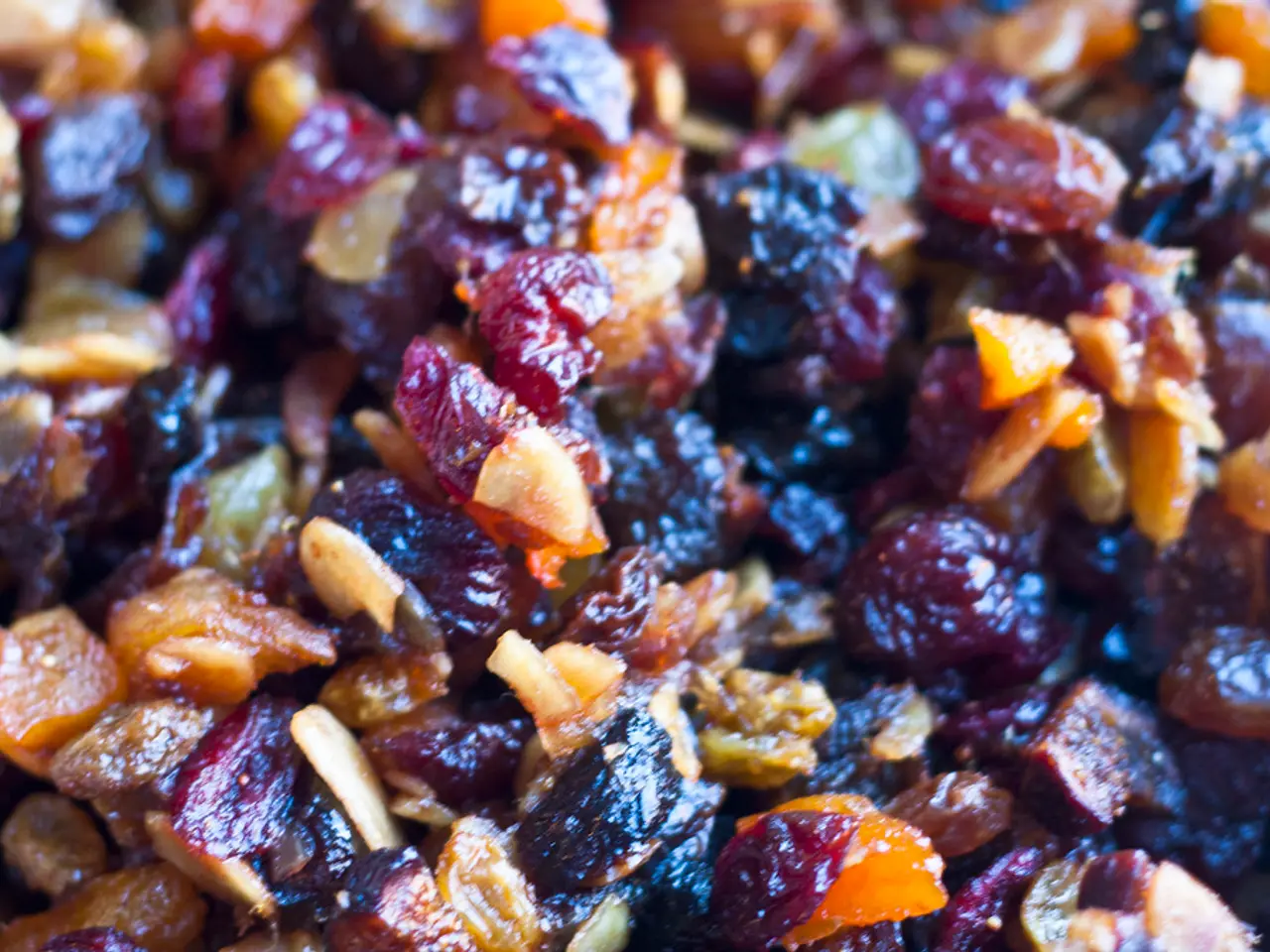Diet with fasting-like characteristics slows down prediabetes indicators and signs of aging by approximately 2.5 years.
Fast-Mimicking Diet (FMD) Shows Promise for Improved Metabolic Health
The Fast-Mimicking Diet (FMD), a structured, low-calorie, plant-based eating plan, has been shown to replicate many of the physiological benefits of traditional water-only fasting, without the need for complete food abstinence [1].
The FMD works by restricting calories and protein for around five days, providing just enough nutrients to reduce hunger and discomfort while signaling to the body that it is in a fasting state. This diet triggers a metabolic switch similar to that seen in water fasting, where the body depletes glucose and glycogen stores, and begins burning fat for fuel, generating ketones—an alternative energy source that supports brain and muscle function [3].
Researchers have found that after three monthly cycles of the FMD, participants experienced improvements in their health markers. These improvements included decreased insulin resistance, reduced risk factors for prediabetes, significant reduction in abdominal fat, decreased fat within the liver, improved markers for metabolic syndrome, signs of a more youthful immune system function, reduced inflammatory markers, and a decrease in biological age [2].
The FMD promotes cellular rejuvenation through autophagy, a natural process where damaged or old cells are broken down and removed, thereby supporting tissue repair and regeneration [1][3]. Additionally, the diet activates stem cells to produce new immune cells, enhancing overall resilience [3][4].
The FMD is not about starvation but provides carefully calibrated calories and nutrients that allow the body to enter a fasting-like state. It is structured as a five-day eating plan, with approximately 1,100 calories on day one and approximately 720 calories on days 2-5. The diet is primarily plant-based, focusing on vegetables, nuts, seeds, and olive oil [1].
It is important to note that the FMD is a periodic intervention, not a daily practice like intermittent fasting or time-restricted eating. It should be approached cautiously by people with certain health conditions and ideally done under medical supervision [1]. The diet is not suitable for pregnant women, underweight individuals, people with eating disorders, or those with certain medical conditions.
The long-term effects of the FMD remain unknown. However, the FMD is more structured and potentially easier to maintain over the long term compared to other fasting methods. Different individuals may benefit from different fasting protocols based on their genetic makeup, gut microbiome, and existing health conditions.
The fasting-mimicking diet should be viewed as one potential tool in a comprehensive approach to health, not a standalone solution or anti-aging miracle. Modified fasting approaches tailored for specific conditions like diabetes, cardiovascular disease, or neurodegenerative disorders are being researched.
The FMD is backed by serious science, developed by Valter Longo, a professor at the USC Leonard Davis School of Gerontology. Always consult a healthcare provider before starting the FMD.
[1] Longo, V. D., et al. "A Periodic Diet that Mimics Fasting Promotes Multi-System Regeneration, Enhanced Cognitive Performance, and Healthspan in Mice and in Humans." Cell Metabolism, vol. 26, no. 2, 2017, pp. 181–193. [2] Longo, V. D., et al. "A Prolonged Fasting Protocol Improves Glucose Tolerance and Reduces Insulin Resistance in Humans." Cell Metabolism, vol. 15, no. 6, 2012, pp. 973–981. [3] Longo, V. D., et al. "Fasting-Mimicking Diets: Moses, the Longevity Diet, and Intermittent Fasting." Trends in Endocrinology and Metabolism, vol. 31, no. 10, 2020, pp. 739–750. [4] Longo, V. D., et al. "Fasting Mimicking Diets Improve Immune Responses in Humans." Cell Stem Cell, vol. 26, no. 6, 2019, pp. 1031–1043.
- Incorporating supplements and healthy diets rich in nutrition, such as vegetables, nuts, seeds, and olive oil, could support the effectiveness of the Fast-Mimicking Diet (FMD), a method known to improve metabolic health and aged-related markers.
- Adhering to a fitness-and-exercise routine, along with maintaining a healthy diet, may further augment the benefits from the FMD, as physical activity and proper nutrition combine to yield synergistic effects on overall health-and-wellness and aging.
- As research continues to uncover the benefits of the FMD, exploring supplements that promote autophagy, support cellular rejuvenation, or enhance immune function - such as antioxidants, probiotics, or stem cell boosters - could potentially heighten the diet's efficacy in promoting longevity and optimal health.




